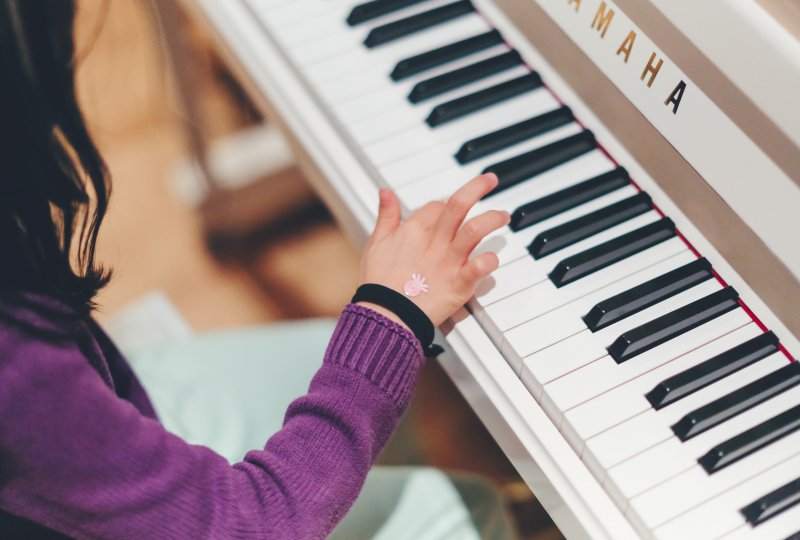How often do we tap our feet and get grooving to tunes? Well, almost always.
After all, we grew up to lullabies, and we live by listening to songs. Music is an integral part of our lives, and it always will be. Music has an enchanting effect on us. But, that’s not all music is.
Music has varied benefits that help strengthen learning abilities, especially in kids, by providing an enriching experience that affects different aspects of physical and mental development. Musical activities stimulate the entire brain and foster cognitive abilities.
In 2009, researchers O.E. Wetter, F. Koerner, and A. Schwaninger conducted a study to ascertain if students involved in musical training bettered their counterparts, who did not practice music, in school. The results suggest that participation in music correlates with higher academic performance.
Similarly, a 2012 research from Northwestern University concluded that a little music training in childhood improves brain functions related to listening and complex sound processing in adulthood.
Here are some advantages of incorporating musical training in schools :
1. Creates a Positive Learning Environment
Music calms our body and mind and it creates a positive environment where students can learn better. Soft instrumental tunes in the background can reduce distractions and increase productivity in classrooms.
2. Enhances Memory Recall
Listening and playing songs strengthens the neural connections in our brain and helps improve memory and recall abilities. Often, we remember the lyrics to our favorite songs and rhymes from childhood, even when we haven’t heard them in years.
3. Improves Physical Skills
Reading the notes and playing the instrument simultaneously requires synchronized movement of hands, eyes, and feet. This helps in building ambidexterity, hand-eye coordination, and motor skills in children.
4. Cultivates Social Skills
Music is a powerful form of expression. It helps kids understand their individual roles and perform better as a team player. As kids jam in groups, they learn to adjust their pace, tone, and how to stay in sync with others.
5. Aids Language Development
With regular exposure to music, kids start identifying and processing different sounds at a very young age. This causes them to develop what is scientifically called “neurophysiological distinction,” which aids them in literacy and language development.
6. Promotes Cultural Sensitivity
Music is a universal language. It has the power to overcome social and cultural differences, and bring everyone together. When kids are introduced to the music of different cultures, they get sensitized and learn to build empathy towards others.
All those educators, teachers, and parents looking for the right tools to introduce music to kids, do check out Plugo Tunes– a music learning kit for kids.





